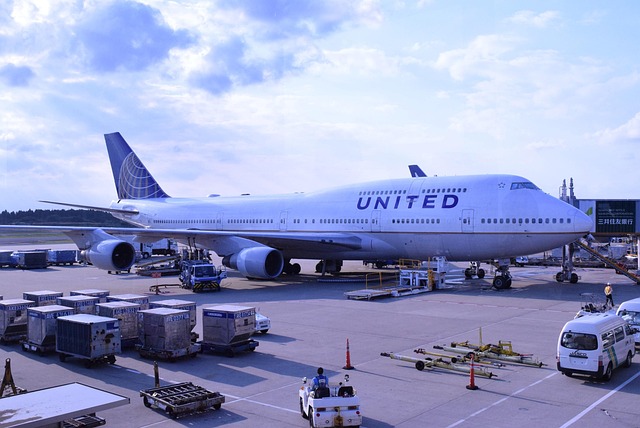Airport Careers Explored: A Comprehensive Guide to Aviation Opportunities
Airports offer more than just travel—they also serve as critical employment hubs filled with diverse career possibilities. From logistics coordination to customer relations, this guide outlines how people pursue roles in aviation settings and what factors typically influence their path. Learn more about industry expectations, qualifications often considered, and how roles are structured across departments. Whether exploring new paths or seeking insight into how others navigate career planning, this resource provides helpful details on what’s generally involved.

What Are Aviation Management Careers and Their Requirements?
Aviation management careers encompass leadership roles across airport operations, airline administration, and facility coordination. These positions typically require bachelor’s degrees in aviation management, business administration, or related fields, though some roles may accept equivalent experience combined with industry certifications.
Airport operations managers oversee daily facility functions, coordinate with airlines and government agencies, and ensure compliance with federal regulations. Airline station managers handle ground operations for specific carriers, managing staff schedules, passenger services, and cargo handling. Revenue management specialists analyze pricing strategies and route profitability, requiring strong analytical skills and familiarity with industry software.
Career advancement often involves starting in entry-level positions and gaining experience across different departments. Many professionals pursue additional certifications from organizations like the American Association of Airport Executives to enhance their credentials and advancement potential.
How Does Airport Security Training Work?
Airport security training involves comprehensive programs administered by the Transportation Security Administration and certified training providers. New security officers complete approximately 60 hours of classroom instruction covering X-ray interpretation, metal detector operation, explosive detection procedures, and customer service protocols.
The training process begins with background checks and security clearance verification, followed by structured coursework covering federal regulations, threat recognition, and screening procedures. Hands-on training includes practice with screening equipment, scenario-based exercises, and evaluation of suspicious items or behaviors.
Ongoing training requirements mandate annual recertification and periodic skill assessments. Security personnel must demonstrate proficiency in updated procedures, new technology implementations, and evolving threat detection methods. Career progression within airport security may lead to supervisory roles, specialized units, or federal law enforcement positions.
What Determines Air Traffic Controller Salary Levels?
Air traffic controller salary ranges depend on facility type, geographic location, experience level, and shift assignments. Entry-level controllers typically start at federal pay grades that correspond to specific salary bands, with advancement based on performance evaluations and additional certifications.
Controllers at major metropolitan airports generally earn higher salaries than those at smaller regional facilities, reflecting the complexity and volume of traffic managed. Night shifts, weekend assignments, and holiday coverage often include additional compensation through shift differentials and overtime opportunities.
Experience progression involves moving through different facility ratings and control positions. Approach and departure controllers, tower controllers, and en-route center specialists have varying salary structures based on their specific responsibilities and the complexity of airspace managed.
What Are Ground Crew Job Requirements?
Ground crew job requirements vary by position but generally include physical fitness standards, safety training completion, and ability to work in outdoor conditions across different weather scenarios. Most positions require high school diplomas or equivalent, though some specialized roles may require additional technical training or certifications.
Baggage handlers and ramp agents need physical capability to lift heavy items and operate ground support equipment. Aircraft maintenance technicians require Federal Aviation Administration certifications and specialized training in aircraft systems, engines, or avionics. Fuel service coordinators must complete hazardous materials training and safety protocols specific to aviation fuel handling.
Driver’s licenses and clean driving records are typically required for positions involving ground vehicle operation. Many employers provide on-the-job training for equipment operation, safety procedures, and company-specific protocols, though prior experience in logistics or transportation can be advantageous.
| Position Category | Typical Salary Range | Training Duration | Key Requirements |
|---|---|---|---|
| Aviation Manager | $55,000 - $120,000 | 3-6 months | Bachelor’s degree, leadership experience |
| Security Officer | $35,000 - $55,000 | 2-3 months | Background clearance, physical fitness |
| Air Traffic Controller | $50,000 - $185,000 | 12-18 months | FAA certification, specialized training |
| Ground Crew | $28,000 - $65,000 | 2-8 weeks | Physical capability, safety training |
Prices, rates, or cost estimates mentioned in this article are based on the latest available information but may change over time. Independent research is advised before making financial decisions.
Career Development and Industry Growth
Airport career development often involves lateral movement between departments to gain comprehensive industry knowledge. Many professionals start in operational roles and transition into management, specialized technical positions, or regulatory compliance areas based on their interests and aptitudes.
Industry growth patterns show increasing demand for cybersecurity specialists, environmental compliance officers, and technology integration roles as airports modernize their systems and expand digital capabilities. Continuing education through industry associations, professional development programs, and advanced certifications can significantly impact career trajectory and earning potential.
The aviation industry’s cyclical nature means job security can fluctuate based on economic conditions, travel demand, and external factors affecting air transportation. However, essential airport functions like security, air traffic control, and maintenance provide relatively stable employment opportunities regardless of broader industry fluctuations.
Airport careers offer diverse opportunities across multiple specializations, each with distinct training requirements, salary expectations, and advancement paths. Success in aviation careers typically combines technical competency, regulatory knowledge, and strong communication skills, as most positions involve coordination with multiple stakeholders in safety-critical environments. Understanding specific role requirements and industry expectations helps job seekers make informed decisions about pursuing aviation career paths.




